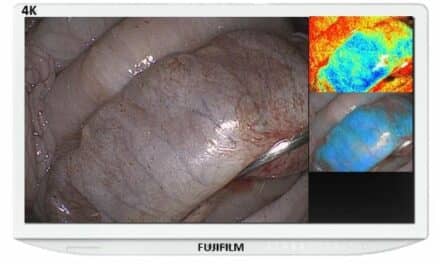The U.S. FDA is warning health care providers and people with diabetes of the risks associated with the use of devices for diabetes management unauthorized for sale in the United States, whether used alone or along with other devices. According to the agency, the FDA has not reviewed these unauthorized diabetes management devices to ensure they provide a reasonable assurance of safety and effectiveness for their intended use. Further, use of such unauthorized devices could result in inaccurate glucose level readings or unsafe insulin dosing, which can lead to injury requiring medical intervention or death.
The FDA received a report of a serious adverse event in which a patient used an unauthorized device that receives the electronic signal from an FDA-authorized glucose sensor and converts it to a glucose value using an unauthorized algorithm. Glucose values from this unauthorized continuous glucose monitoring system were then sent to an unauthorized automated insulin dosing device to drive insulin dosing. And the automated insulin dosing system gave too much insulin in response to repeated incorrect high glucose values sent from the continuous glucose monitoring system.
Moreover, the FDA has authorized some diabetes management devices for sale in the United States only in a specific configuration, while others are authorized for use with other compatible devices; this may include automated insulin dosing systems, insulin pumps, blood glucose meters, or other devices used for diabetes management. For example, an authorized automated insulin dosing system will include a specific continuous glucose monitoring system, a specific insulin pump, and a specific algorithm. These devices are all tested and authorized together as a system.
Also, the FDA has authorized diabetes devices that have been designed to work safely with other devices, such as integrated continuous glucose monitoring systems and “automated controller enabled” insulin pumps, that comprise diabetes therapy systems. This approach allows patients to safely tailor their diabetes management. Devices are labeled to indicate which compatible devices patients can safely use together as a system.
When patients combine devices that are not intended for use with other devices, or when patients use any unauthorized devices, new risks are introduced that the FDA has not evaluated for safety or effectiveness, officials for the agency say. Patient use of unauthorized diabetes management devices, alone or along with other devices, could result in inaccurate glucose level readings or unsafe insulin dosing. These inaccuracies may lead to injuries requiring medical intervention, such as severe low blood sugar, coma, diabetic ketoacidosis, and death.
In addition, the FDA is aware of manufacturers marketing unauthorized diabetes management devices that use an algorithm to convert raw data from an FDA authorized glucose sensor to a glucose level displayed to the patient. The FDA has not evaluated the algorithm that these unauthorized devices use. The algorithm may return inaccurate glucose values.
As part of the FDA’s Medical Device Safety Action Plan, the FDA is committed to alerting the public when safety issues are identified, such as our recent communication regarding purchasing pre-owned or unauthorized test strips, agency officials say. Further, the FDA will continue to closely monitor adverse event reports associated with diabetes management devices and will take additional steps as necessary. And if significant new information becomes available, the agency will update this communication.
Prompt reporting of adverse events can help the FDA identify and better understand the risks associated with the use of continuous glucose monitoring systems, automated insulin dosing systems, and insulin pumps, FDA officials say. Moreover, health care personnel employed by facilities that are subject to the FDA’s user facility reporting requirements should follow the reporting procedures established by their facilities.





